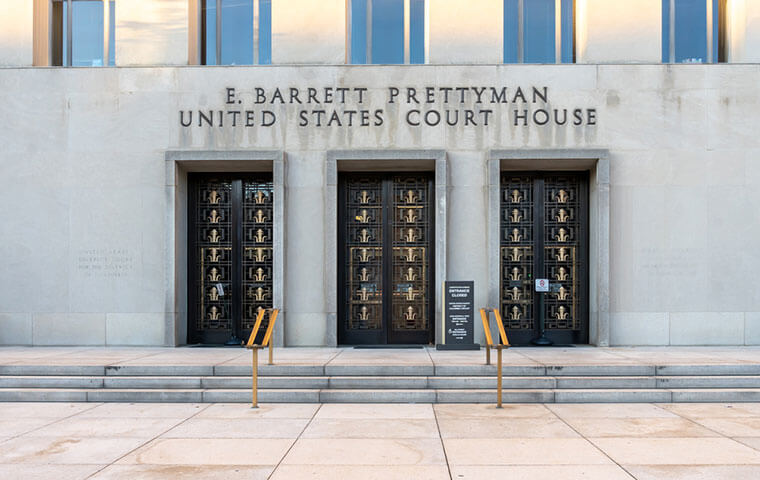 The Justice Department argues that the standards for removing such officials is an unconstitutional limit on a President’s authority to manage the executive branch, something trial courts have rejected thus far. Image: JHVEPhoto/Shutterstock.com
By: FEDweek Staff
The Justice Department argues that the standards for removing such officials is an unconstitutional limit on a President’s authority to manage the executive branch, something trial courts have rejected thus far. Image: JHVEPhoto/Shutterstock.com
By: FEDweek StaffIn the latest of rulings overturning firings of the heads of independent federal agencies, a federal judge has ordered Susan Tsui Grundmann restored to her seat on the FLRA, restoring a 2-1 Democratic majority on that board at least for a time.
That is potentially a key development as federal unions bring challenges to the FLRA against various Trump administration policies affecting the unions themselves or the employees they represent. FLRA decisions tend to fall along party lines to a greater extent than decisions of the MSPB, for example.
Grundmann, a Biden administration nominee confirmed in 2022 for a term due to expire July 1, was fired in a brief email from the White House personnel office, similar to the firings of MSPB member Cathy Harris and then-Special Counsel Hampton Dellinger.
As with those positions, the decision said, law states that the incumbent can be fired only for “inefficiency, neglect of duty, or malfeasance in office.” However, “the Government does not allege that Ms. Grundmann has been an ineffective Member of the FLRA . . . She did not receive notice or a hearing, nor was any ‘inefficiency, neglect of duty, or malfeasance in office’ identified,” District Judge Sparkle L. Sooknanan of the U.S. District Court for the District of Columbia wrote.
Other judges had said much the same in ordering the reinstatements of Dellinger and Harris. Dellinger however dropped his challenge after an appeals court issued a preliminary decision against him, in the face of what likely would have been many more months of legal fighting with the position available to be filled by a Trump designee in the meantime.
The Justice Department argues that the standards for removing such officials is an unconstitutional limit on a President’s authority to manage the executive branch. The trial courts have rejected that argument in each case, although the appeals court in Dellinger’s case effectively found that was a significant enough possibility that he should not remain in office while it considered that issue.
The administration also has appealed the ruling in favor of Harris, with oral arguments set for this week and a decision by an appeals court panel to follow. Should the appeals court reverse and uphold her firing, the MSPB would be left with only one member.
That would leave the MSPB unable to decide on decisions of its hearing officers as thousands of probationary employees have challenged their firings on grounds that the boilerplate language agencies used did not meet the legal test for informing them of specific performance deficiencies. In the last five weeks, an average of 1,500 new cases have been filed at the MSPB, compared with an average of about 100 a week previously.
Of the two court cases involving top agency officials still active, that of Harris is the one most commonly being eyed for being pursued all the way through a decision by the U.S. Supreme Court, since her term is not set to expire until March 1, 2028.
Key Bills Advancing, but No Path to Avoid Shutdown Apparent
TSP Adds Detail to Upcoming Roth Conversion Feature
White House to Issue Rules on RIF, Disciplinary Policy Changes
DoD Announces Civilian Volunteer Detail in Support of Immigration Enforcement
See also,
How Do Age and Years of Service Impact My Federal Retirement
The Best Ages for Federal Employees to Retire
How to Challenge a Federal Reduction in Force (RIF) in 2025
Should I be Shooting for a $1M TSP Balance? Depends…

